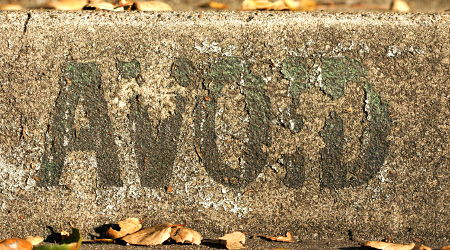How Can Someone Avoid Foreclosure?

During tough economic conditions such as housing market downturn or period of high unemployment, it may be necessary for home owners to look at various options to avoid foreclosure. Fortunately, there are a number of different programs available offered by the federal government and handled through nonprofit organizations and financial lenders. It may also be possible to deal with your existing mortgage company to delay payments or renegotiate your mortgage terms to make avoiding foreclosure a reality.
Forbearance
Many lenders such as banks and credit unions understand home owners sometimes get behind on a mortgage payment or two. Short period of unemployment or unexpected expenses such as an automobile repair may put a strain on some home owners financially. Forbearance can be an option to temporarily suspend mortgage payments for a few months. If you have a good credit history and have been a reliable mortgage payer for a number of years then a forbearance may be a perfect solution to provide temporarily relief until you're back on your feet financially.
Re-Negotiate
After the housing crisis, many home owners found their monthly payments increasing dramatically as a result of their adjustable-rate mortgage resetting. Homeowners who were capable of making payments prior to the interest rate adjustment found themselves in a tough spot. They were in the untenable situation of having too much money to qualify for special programs but still looking at possible foreclosure in the distant future. Many government programs were created specifically to renegotiate mortgage terms for some home owners. Most programs however require home owners to be current on their payments and the mortgage lender willing to accept a new mortgage arrangement.
Short Sale
An existing home owner's financial situation does not preclude the possibility of selling their home on an open market. Many home owners, after years of dramatic price reductions, find themselves underwater on their existing mortgage with little incentive to continue making payments. Not willing to walk away from their financial obligation and looking to avoid foreclosure and significant credit report damage, they often consider conducting a short sale. A short sale is when a bank or credit union issuing the mortgage agrees to the sale of a home for less than the current outstanding mortgage obligation. A home owner may owe $150,000 but has an offer for $130,000 from a perspective buyer. If the mortgage issuer agrees to the short sale terms then the home owner will not owe the remaining $20,000.
Deed-in-Lieu
A final option for someone to avoid foreclosure is to conduct a deed-in-lieu with the mortgage loan originator. What this means is that the home owner prepares a properly signed and notarized deed returning the property back to the financial institution which then agrees to cancel the outstanding mortgage. This has the net effect of the home transaction never taking place. The downside is that it may have the same negative impact on a consumer's credit score and credit report as if they had gone through the foreclosure process. It primarily depends on how the lender wishes to deal with the situation and report information to each of the credit reporting bureaus.







